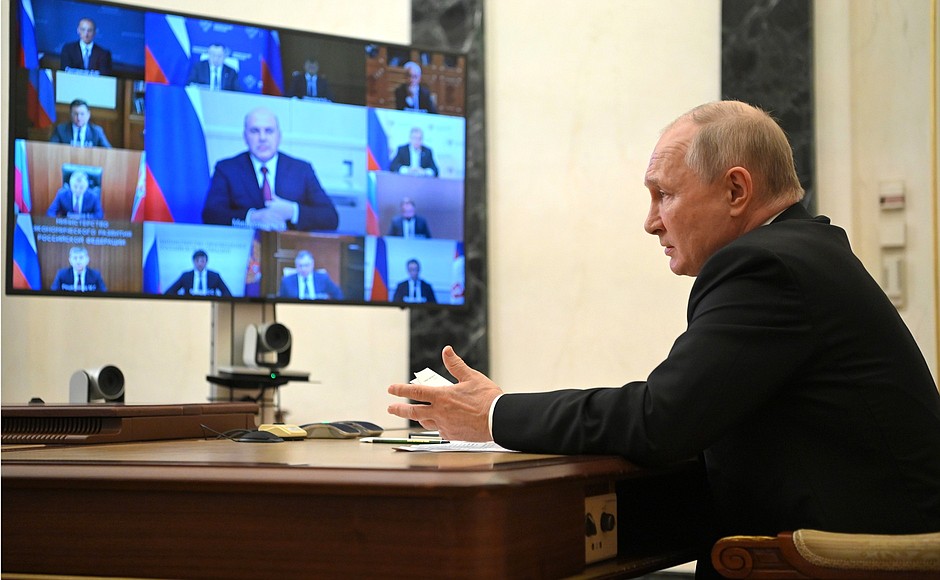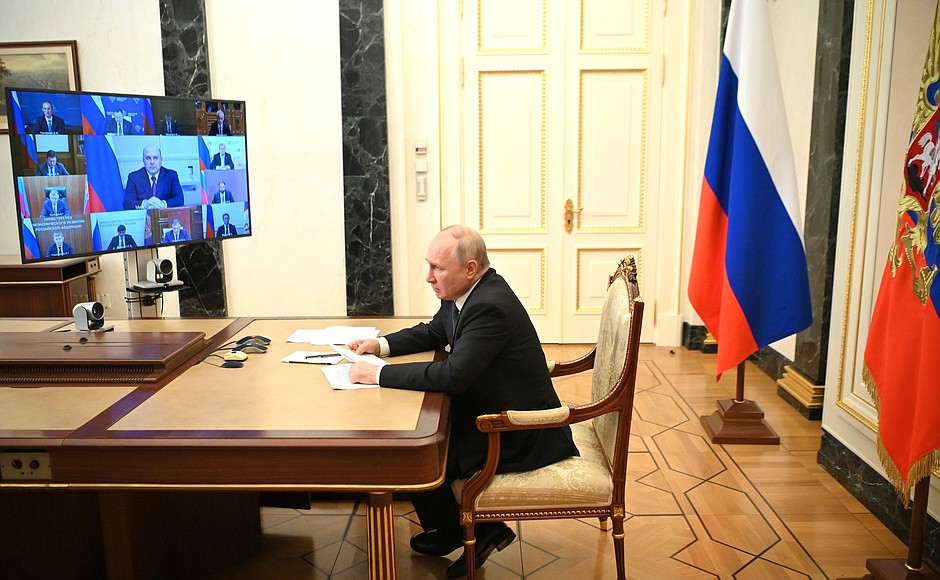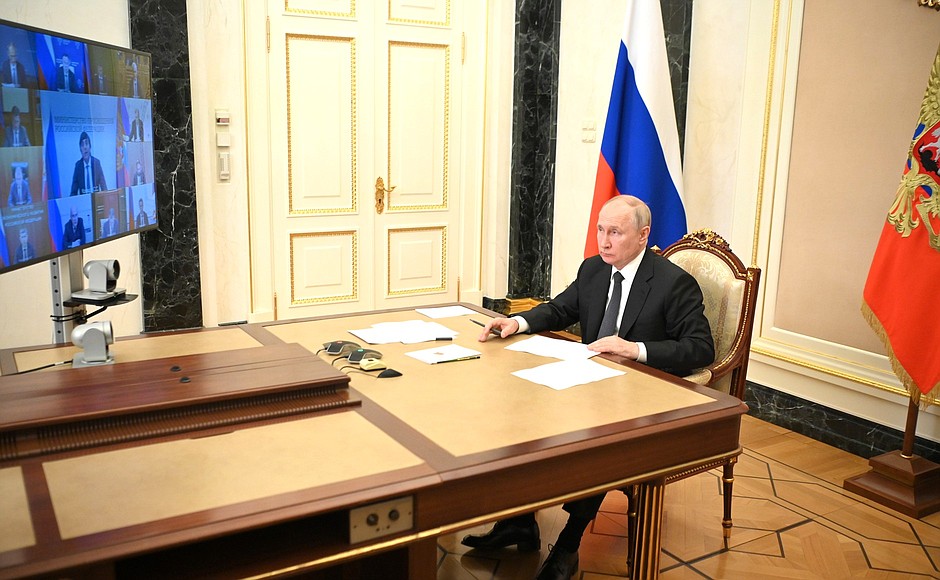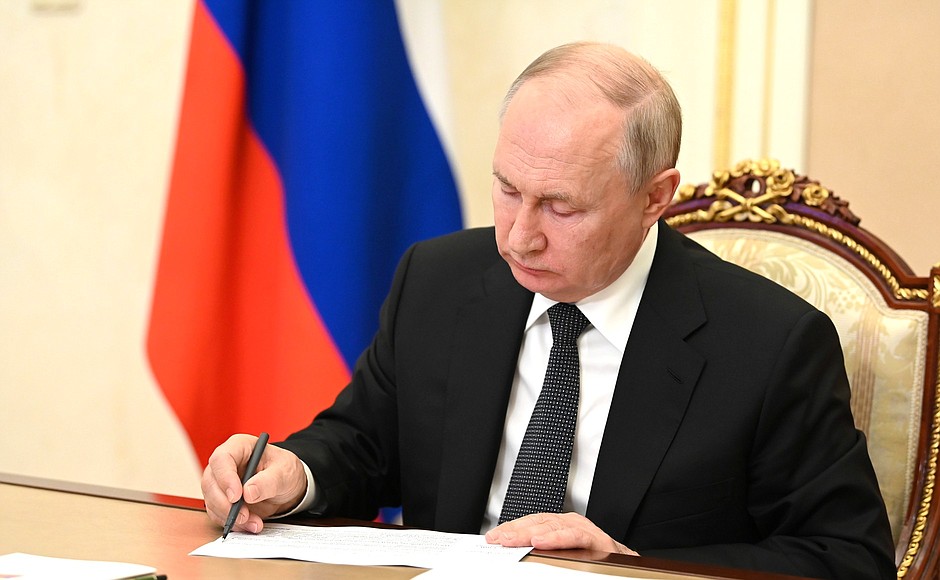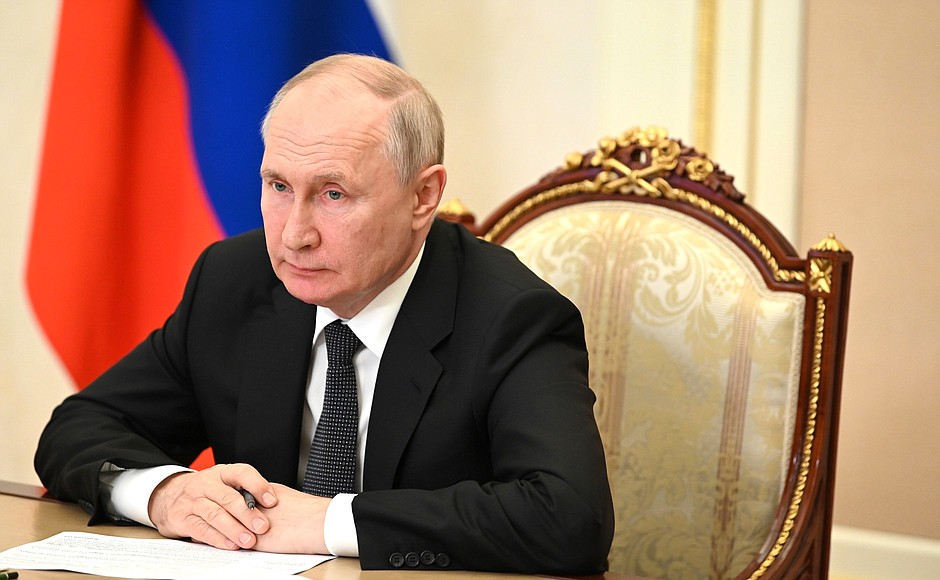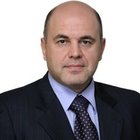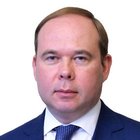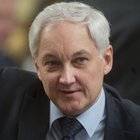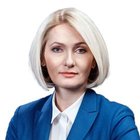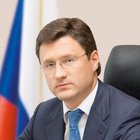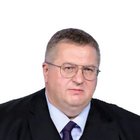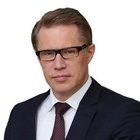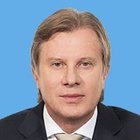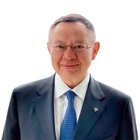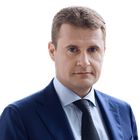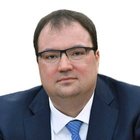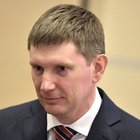Taking part in the meeting were Prime Minister Mikhail Mishustin, Chief of Staff of the Presidential Executive Office Anton Vaino, First Deputy Prime Minister Andrei Belousov, Deputy Prime Minister – Minister of Industry and Trade Denis Manturov, Deputy Prime Minister – Chief of the Government Staff Dmitry Grigorenko, deputy prime ministers Viktoria Abramchenko, Alexander Novak, Alexei Overchuk and Marat Khusnullin, as well as Minister of Economic Development Maxim Reshetnikov. In addition, Minister of Education Sergei Kravtsov, Minister of Health Mikhail Murashko, Minister of Transport Vitaly Savelyev, Minister of Construction, Housing and Utilities Irek Fayzullin, Minister for the Development of the Russian Far East and Arctic Alexei Chekunkov, Minister of Digital Development, Communications and Mass Media Maksut Shadayev, Acting Head of the Federal Customs Service Ruslan Davydov, and First Deputy Director – Head of the Border Service of the Federal Security Service Vladimir Kulishov were invited to attend the meeting.
* * *
President of Russia Vladimir Putin: Good afternoon, colleagues,
Today, we will discuss an important issue – improving state border checkpoints. It is important for the proper organisation of foreign economic activity, which is particularly vital now. But I would like to start with a different issue that also plays a big role, I would say a decisive role in the integration of the Donetsk and Lugansk people’s republics and the Kherson and Zaporozhye regions into the common Russian cultural space.
Strictly speaking, the residents of the said regions have never left this space. They cherish their native tongue and have a keen interest in great Russian culture. I know they are fond of the works by our outstanding compatriots despite all attempts by the current Ukrainian authorities to ban books by classic and contemporary Russian writers, pull them from shops and libraries and even destroy them. This is what they and their Western patrons are dreaming of doing to all those who think, speak and read in the Russian language.
Such policy has never had and will never have any future, and people have already given their unequivocal answer to this.
The primordial Russian lands of Donbass and Novorossiya have returned home where they belong. We are restoring them step by step and organising peaceful life in the liberated territories, including cultural and education activities.
Today, there are over a thousand public and 1,300 school libraries in the DPR, the LPR, and the Zaporozhye and Kherson regions. However, the books they have were mostly issued in Soviet times. Clearly, they had not been upgraded at all really in the past 30 years. It is necessary to replenish library shelves of Donbass and Novorossiya with domestic and foreign literature, including school curriculum books.
I know the Government is dealing with this issue in detail. Relevant departments – the ministries of education, culture and digital development – have specified the lists of books for school and public libraries of the new regions. Together with the Russian Book Union, they will ensure, in the near future, the printing, purchase and delivery of over 2.5 million copies.
Please note that this work should be carried out as soon as possible. School children should have all the necessary books and manuals for the new academic year. And, of course, it is necessary to give residents of Donbass and Novorossiya access to internet resources with electronic and audio books. Everyone should have an opportunity to read new books or reread classics in Russian, becoming immersed in the worlds of well-known literary heroes. The libraries of the new regions also need to be connected to e-services with classics free of charge wherever this is technically possible.
A special decision was made to support the efforts of the Government and the regions of the Federation in these areas, notably, to allocate additional funds from the Presidential Reserve Fund. I would like to ask my colleagues from the Executive Office to monitor the use of these funds and the implementation of this programme in general.
Let’s listen to Minister of Education Sergei Kravtsov. Then I would like to ask Minister of Economic Development Maxim Reshetnikov to tell us about the economic results of the Russia–Africa Summit.
Mr Kravtsov, go ahead please.
Education Minister Sergei Kravtsov: Mr President, colleagues.
We have deployed a system-wide effort in Russia’s new regions as we strive to integrate them within the national educational space as quickly as possible and offer both students and teachers a proper learning environment. You were absolutely right, Mr President, when you said that the textbooks, fiction books and libraries we inherited there are quite mediocre, to say the least.
Russian language textbooks have not been updated for years. Libraries hardly received any new books at all, and if they did, they mostly received the so-called Soros books which confuse children’s mindsets rather than teach anything. However, having good textbooks, teacher’s guides and a rich selection of fiction books is a major priority.
It is for this reason that we took several urgent measures a year ago. This included sending 7.5 million textbooks and manuals to the new regions ahead of the academic year so that the schools there had everything they needed by September 1, 2022. We also sent 300,000 copies of early child development books to kindergartens.
As for fiction books, we worked with the United Russia party last year on the Children to Children volunteer project to deliver over a million books to school libraries, while sponsor regions sent another million books there. I would like to extend my deep gratitude to our colleagues for their support.
As for this year, we have been working with the Ministry of Digital Development on book supplies. We started by defining what kind of books will be delivered. School libraries will be getting books covering all levels of education. We approved the corresponding list and sent it to the Ministry of Digital Development. It contains about 200 authors, most of them Russian.
Let me emphasise that all school libraries will get these sets. As you have said, there are 1,300 of them, and they will receive almost 2 million books from us.
We will also send more books to public libraries. There are over a thousand of them. Apart from the books covered by the school curriculum, they will receive other books for all ages too. Let me add that we also worked with the Ministry of Digital Development to connect the new regions to the My School state information system. We will make sure that it works in sync with the E-Library system by September 1, so that by this time all school libraries will be able to benefit from free access to fiction e-books and the latest teacher’s guides, as you have said Mr President.
Mr President, while speaking about textbooks I have to mention one more vital issue, the teaching of history and the quality of history textbooks.
We can see that our enemies are cynically using our children’s trust to divide nations and sow mistrust among people. They are targeting our shared past and those who can no longer respond. For example, the bas-relief portraits of Potyomkin has recently been removed from the façade of School No. 51 in Kherson and of Tchaikovsky from the façade of Music School No. 1 in Uzhgorod. They are dismantling monuments to Pushkin, Suvorov and Catherine the Great and vandalising the graves of our liberator soldiers. It is a veritable war on history, and our main weapon must be quality historical education and thorough knowledge based on facts.
In this context, I would like to report that the ministry has prepared a standard programme for teaching history. It should be said that in the past any school and any teacher could use their own programmes, which led to a multitude of interpretations of history and to distortions in the presentation of certain issues.
The first state-approved standard textbook has been prepared for the 10th and 11th grades under a single federal programme. In accordance with the law, the state holds the right to that textbook. For the first time ever, the textbook offers a coordinated presentation of two courses, History of Russia and General History. The textbook was compiled under the guidance of our leading historians Alexander Chubaryan, Anatoly Torkunov and Vladimir Medinsky. The textbook was prepared extremely quickly, in a matter of five months.
Nearly a third of the textbook for the 10th grade, or much more than before, is devoted to the Great Patriotic War.
The textbook for the 11th grade covers crucial events connected with the reintegration of Crimea and Sevastopol, the reasons for and the course of the special military operation, the integration of new regions into the Russian Federation, and the acts of heroism by the new heroes of the Fatherland.
The textbook has been approved and added to the federal list last week. It has been printed by Prosveshchenie Publishers. I would like to add that its costs 20 percent less than the previous textbook.
I would like to emphasise that all eleventh graders in the country, or 650,000 pupils, will use this textbook to study modern history starting September 1 this year.
Thank you.
Vladimir Putin: Will you have time to print the textbooks?
Sergei Kravtsov: Yes, we are doing everything possible to make sure it is done in time.
Vladimir Putin: And distribute them among schools by September 1.
Sergei Kravtsov: Mr President, I am personally monitoring this. We’ll get it done. We understand it is an important task.
Vladimir Putin: Good.
Mr Shadayev, what about connecting [schools] to the Russian E-Library?
Minister of Digital Development, Communications and Mass Media Maksut Shadayev: Good afternoon, Mr President.
Indeed, we have fully streamlined the delivery of paper textbooks according to approved lists, in cooperation with the Ministry of Education and the Ministry of Culture.
As many as 1,341 schools will receive sets of 290 books, four copies each. Respectively, 1,030 public libraries will receive 418 sets of books, two copies each. As you rightly said, that will be around 2.5 million paper books printed and by the end of September, the books will be shared between school and public libraries.
Access to electronic books is also a very important format. What are we doing? All school libraries will be connected to a shared platform. From September 1, any school student will be able to go to a school library, get a login, a password and instal the LitRes School app on his or her smart phone. The app will provide access to electronic copies of the same fiction books that the libraries will receive in hard copy. Additionally, there will be access to all classical literature in the app, or thousands of titles.
The same will be done for public libraries. Anyone will be able to come to a library, show their passport, sign up and get a login and password. They will be able to download any book available in the app and get access to all classical literature available in the electronic format. This project will run in both school and public libraries starting from September 1. We believe this format will be as popular as reading hard copies.
The project is all set as per your decisions. We have received funding from the Presidential Reserve Fund. Paper books will be delivered to school and public libraries by the end of September. And from September 1, users will be able to download electronic copies of the same books.
Thank you.
Vladimir Putin: Thank you very much. I hope it will work out as intended.
Mr Reshetnikov, what about the outcome of the Russia-Africa Summit in terms of the economic dimension, so to say?
Economic Development Minister Maxim Reshetnikov: Mr President, colleagues.
The Russia-Africa Summit served as a major impetus for fostering development in several sectors from trade and agriculture to energy and transport, IT and tourism. It is thanks to your bilateral meetings with the leaders of African countries that we were able to gain better insight into the way they view the development path for their countries and discuss specific matters. Of course, all this helps us find new common niches with each of these countries.
The summit’s main outcome is that Africa remains a key ally and a promising strategic partner for our country. Why does this matter so much to us?
First, this region has a rapidly growing population. Today, the African continent is home to almost 1.5 billion people, and by 2030 the population is expected to grow by another 200 million, and to about 3.5 billion by 2100, according to demographers. The region is also expected to experience rapid economic growth as it catches up to other economies. Over the past decades, African economies reported growth rates twice the global average. Today, Africa is just starting on the journey that the emerging economies of Southeast Asia and India are currently following, while China has largely completed it. It is not a coincidence that other countries are also looking at this continent with a lot of interest. Those who succeed in building effective ties with this region will benefit from working with a valuable economic partner for decades to come.
This is a huge and emerging market for our businesses, primarily in the agricultural sector. Last year alone, we exported 11 million tonnes of wheat to Africa, and almost 9 million tonnes in the first six months of this year. Africa will also increase its agricultural production, creating new markets for our fertiliser, soil rehabilitation and plant protection technology exports. Russian agricultural equipment manufacturers could also export their products there and maybe even set up SDK assembly facilities in Africa. During the summit, every country without exception said they were interested in cooperating in this sphere.
Demographic and economic growth always means higher energy consumption. We know how to generate electric power, build and operate hydropower and nuclear power plants. There was a lot of interest in nuclear energy during the meetings. Moreover, we are also developing solar power generation; we have the technology for this.
It should be noted, however, that half the population on the continent still has no access to electricity. What we consider a basic standard of living is unavailable to half the people there. Therefore, conventional energy produced from burning coal and gas will also be in demand. Moreover, it will be necessary to increase oil processing, including production of oil products. This is exactly what Russia can offer, and we have our own technology in these industries.
Africa has an enormous resource base and our colleagues have asked for assistance with adopting production technology for natural resources. There are good prospects for joint projects in Namibia, Tanzania and Burkina Faso, in particular, field development and natural resource production, including production and processing of the rare-earth minerals that are in abundance in Africa.
Urbanisation in Africa is picking up pace, which means that Russia’s experience in developing cities and metropolitan areas, transport systems and digitalisation will be useful. Russian companies are competent in and willing to participate in the construction of housing, roads, railways, ports, oil and gas pipelines, utility networks, and to deliver and assemble lorries, trains and city transport vehicles. All the African countries have expressed interest in cooperation on urban development.
The digital agenda is extremely relevant, including processes in public administration, property rights protection, tax administration technology and interaction between governments and the public. For our part, it would be reasonable to expand technical assistance in implementing Russian digital technology in these countries and, respectively, to allocate additional resources.
The African countries are shifting from fighting for their political sovereignty to fighting for their economic sovereignty. They see Russia as a reliable partner and are ready to give Russian businesses an opportunity to develop and make a profit. Our economic cooperation has expedited since the first summit in 2019. For three straight years now, trade has been growing on both sides. Last year, trade reached about $18 billion. In January-June 2023, it grew by another 35 percent.
On the one hand, tenfold growth over the past 20 years is a good result. On the other hand, for example, with the EAEU countries, where the population is seven times smaller, our trade is four and a half times bigger. This suggests that the potential is very high and the goal is to at least increase or double this figure by 2030.
At the same time, there is a regional imbalance. Almost two thirds of our trade last year was with six countries in northern Africa, so it is important for us to increase our contacts with the other countries as well. We are going to address this problem by increasing insurance support for shipping through EXIAR, our state export development institute, by connecting African banks to the Russian financial messaging system, by building an independent financial and payment infrastructure, and by developing the mechanism for free trade agreements. Together with our colleagues from the EAEU, we are now holding talks with Egypt and working on this issue with Algeria, Morocco, and Tunisia.
Transport corridors are also indispensable for developing trade, so we are now discussing the possibility of locating a Russian port logistics hub and a cargo base on the east coast of Africa. This will be one of the extensions of the North-South International Transport Corridor, which we are currently developing.
It is impossible to support the development of the continent only at the expense of local resources; the continent needs direct investment, and of course, we have to increase Russian investment there, among other things. Deputy Prime Minister Alexei Overchuk sent you proposals on establishing a special investment fund, which will support our companies’ private investments. We will have to develop existing mechanisms to support investment, including concessions and industrial clusters. The Russian industrial zone in Egypt, which we expect to open soon, is an excellent example here.
We are developing these solutions based on legal protection and additional guarantees for investment security. Today we concluded six interstate agreements on the promotion and mutual protection of investments with countries on the continent. But this, of course, is not enough. Two agreements are still in progress. We will, of course, continue this effort.
It is also necessary to expedite the effort to sign agreements on avoiding double taxation. As soon as we start investing, Russian businesses raise this issue.
Another goal you set is to provide better administrative support for Russian companies entering African markets. What do we suggest?
First, we should expand the geography of intergovernmental commissions. Today, we have 18 commissions with African countries. We suggest establishing them also with the countries with which we have promising projects. During the meetings held, you instructed us to do this with Cameroon and Senegal. We consider it expedient to establish them also with Rwanda and Cote d’Ivoire and to set up at least working groups with the countries with which we are just starting to cooperate. For instance, we signed a memorandum on creating a working group with the Republic of Mali – together with the Malian Foreign Ministry.
Second, we suggest redirecting from unfriendly countries to Africa more employees from our embassies and trade missions, as well as economic advisers. We would like to ask the Foreign Ministry to support this initiative.
Third, the work in African countries will certainly require additional people and competences in the Ministry of Economic Development. Therefore, we would like to ask you to support the initiative to recreate a department on interaction with African countries in the ministry’s structure and maybe allocate additional resources for this purpose.
Education is a key track in promoting humanitarian cooperation. We are educating doctors, teachers, engineers and industrial specialists for Africa in our universities. This includes the personnel that will be required for our joint projects. Here all leaders of African countries were very positive on your decision to double the admission of African students to Russian universities.
Mr President, the summit has shown that much will have to be done to support exports, investments, sustainable development and the humanitarian track. We will soon prepare a draft of your comprehensive instructions following the summit under the Government’s supervision and in cooperation with our colleagues from the Foreign Ministry and the Roscongress that organised this event, and we will report back to you.
Thank you.
Vladimir Putin: We are working on free trade area agreements with Egypt, Morocco, Tunisia and Algeria – all from North Africa. The continent has many more growth points, so to speak, and very interesting countries. So we should by no means skip over other regions. The continent is simply enormous. Many experts believe it will develop in a very positive way. It will catch up where it perhaps lagged during the previous decades. And so we should adopt a comprehensive approach to these issues. We must take a comprehensive look at them rather than single out one traditional aspect.
After all, you have seen, we all have seen that they consider Russia a friend and we treat African countries as friends as well. Now we should transform this level of political trust into economic cooperation.
Minister of Construction, Housing and Utilities Irek Faizullin: Mr President, colleagues.
Creating a comfortable urban environment is one of the tasks in achieving the national goals to implement the project to improve the quality of the urban environment. Since the beginning of implementation, actually since 2017, 104,000 such areas have been landscaped and improved, of which 31,000 are public areas, and 73,000 are courtyard areas. Moreover, 28,000 public and courtyard areas have already been improved in small towns. Viewpoints and fountains are being repaired, art objects, stages, sports grounds, and gazebos are appearing.
According to sociological surveys, 93 percent of the population notes the importance of improving and providing a comfortable urban environment. And this effects almost our entire population. The number of people voting for this or that public area improvement increased by 3.5 million people. This year, 14.2 million people voted compared to 10.7 last year, and of course, the effect of implementation is very high.
For the first time this year, residents in our new regions voted –134,000 residents of cities in the Donetsk and Lugansk people’s republics and the Zaporozhye Region.
Last week in Vladivostok, as part of the Development of Small Cities and Historical Settlements forum, Prime Minister Mikhail Mishustin reviewed the results of the 8th Russian Competition for Small Historical Cities and the 2nd Competition for Far Eastern Cities. It should be noted that every year the quality of the entries improves, and the competition increases.
I would like to convey the words of gratitude from the forum participants, and in total there were 1,300 participants from all over our large country, for supporting improvement projects. For the first time, 30 cities from the three new regions took part in the competition. The winners were projects in the Lugansk People’s Republic, the Donetsk People’s Republic and in the Zaporozhye Region.
Of course, this work would have been impossible without support from the sponsor regions.
The competition projects are, of course, the start of an ambitious transformation of cities. Together with other measures to support infrastructure development, the competition has a synergetic effect.
Of course, Mr President, we can see great interest from the country’s residents in city improvement issues. We are confident that all the existing tools will help effectively develop this area and improve the quality of the urban environment.
Vladimir Putin: You mentioned Mr Mishustin’s trip to the Far East. He told me about the results of this trip just this morning. I would like to ask Mr Chekunkov about the development of cities in the Far East. Would you like to add anything?
Minister for the Development of the Far East and the Arctic Alexei Chekunkov: Mr President,
Due to the decisions, your instructions at the previous Eastern Economic Forum, a separate competition to support urban improvement projects was planned for the Far East in 2023. Separate rules for the Far East made it possible to consider the peculiarities of the region and substantially increase the participation of Far Eastern cities in the programme.
(Further, the Minister cited specific facts and figures on urban improvement in the Far East. He reported that the Government of the Russian Federation had adopted a directive on the comprehensive plans for the development of Petropavlovsk-Kamchatsky, the Yuzhno-Sakhalin area, Chita, Ulan-Ude and two major cities along the Baikal-Amur Mainline (BAM) – Severobaikalsk and Tynda. The next set of master plans, including Vladivostok and Khabarovsk, will be presented at the Eastern Economic Forum in September. This year’s limits for special treasury loans worth 30 billion rubles have already been allocated and distributed between the regions for the construction of facilities included in the master plans. The Far Eastern concession instrument for attracting extra-budget investment is being used on a broad scale as well. There is also a programme on creating 10,000 rental flats for needed specialists with a rental price that is three times below the market. In addition, there is a programme for uniform presidential subsidies that made it possible to build 500 large social facilities in the past four years, such as the cardio-vascular centre in Yakutsk and a centre for complex coordination sports in Komsomolsk-on-Amur).
Vladimir Putin: Let’s prepare for the Far Eastern Economic Forum together. As a rule, this goes on good terms and with impressive results. We must make sure that this year will be as successful. This is our common, joint work and the results should also be worthy of the efforts we have been making in this area in the past few years.
Let us get down to the main issue. Mr Savelyev, tell us about the development of border checkpoints, please.
Minister of Transport Vitaly Savelyev: Thank you.
Mr President, colleagues,
Russia has the longest state border in the world. It is 61,500 kilometres long, which is 50 percent longer than the equator.
Russia’s land border is 23,000 kilometres and sea border 38,000 kilometres long. Overall, there are 380 border checkpoints, of which 314 are open.
In 2022, we reviewed our priorities list jointly with the FSB Border Guard Service and the Federal Customs Service and approved a new list of 84 checkpoints. They deal with over 65 percent of freight, and so their modernisation is a priority task.
As per your instructions of May 5, 2023, we have expanded the list to 87 checkpoints by adding the Olochi, Verkhny Ulkhun and Solovyovsk vehicle checkpoints in the Trans-Baikal Territory. In 2021 we launched a large-scale effort on updating legal regulation of the sector. Three federal laws and 15 Government legislative acts have been adopted, some of which approved maintenance standards for checkpoints.
<…>
We are focused on the priority sections of the state border. The longest uninterrupted section of the land border runs for 7,600 kilometres between Russia and Kazakhstan. There are 52 checkpoints there, 50 of which are open. In April 2023, we signed an action plan with Kazakhstan, which provides for a comprehensive renovation of 10 top priority vehicle checkpoints. We will work jointly with Kazakhstan and plan to complete the renovation in 2027.
The second longest Russian border, which stretches for 4,200 kilometres, is with the People’s Republic of China. There are 28 checkpoints, 19 of which are open.
In 2022, we completed the renovation of Russia’s largest Zabaikalsk railway checkpoint, through which nearly 16 million tonnes of cargo are delivered every year. I would like to add that this is half of all the cargo transported across the Russia-China land border.
We joined forces with the Federal Customs Service to switch the Zabaikalsk vehicle checkpoint to round-the-clock operation and increase its throughput capacity from 280 to 600 trucks per day.
(Further, the Minister cited detailed information on the improvement of operation of individual checkpoints and the upgrading of checkpoints along the 328-km Russia-Azerbaijan border, which made it possible to increase the capacity on this section by more than 4.5 times. The reconstruction of the only vehicle checkpoint on the Russia-Georgia border, Verkhny Lars, is nearing completion. The work is being carried out in difficult conditions. The checkpoint is located in a gorge bordered by the Terek River on one side, and a mountain on the other. A unique design solution was eventually found and the number of employees increased. As a result, the capacity of the Verkhny Lars checkpoint has more than doubled.)
Standard designs and requirements for the construction and equipping of checkpoints were drafted and endorsed in 2022. The development and introduction of specialised equipment for inspection and security screening systems deserve special attention. These systems come in three types – stationary, mobile and portal.
Last year, we installed portal systems at the border for the first time in Russia. The advantage is that a driver does not have to leave his vehicle, thus, control procedures take 2–2.5 times less time. This equipment was made by the Russian companies Diagnostika-M and Rostec’s Skantronik.
In 2022 and 2023, four portal systems were installed at two checkpoints – Mashtakovo and Tagirkent-Kazmalyar. Another five checkpoints will be equipped with seven portal security screening systems before the end of this year’s third quarter.
I would like to note that I am personally monitoring the development of checkpoints. Using this opportunity, I would like to thank our colleagues from the FSB Border Service of Russia and the Federal Customs Service of Russia for their continuous support and a qualified expert approach that allows us to draft joint solutions in developing and administering checkpoints.
Mr President, in 2022, the Transport Ministry reached all the indicators and goals you set before us. Last year, we carried out a set of measures at 65 border checkpoints. I will mention, for comparison’s sake, that in the previous five-year period – from 2017 to 2021 – we implemented only 64 measures whereas this year we will complete them at 73 checkpoints. I would like to highlight some indicators that the Transport Ministry is planning to achieve before 2025.
First, to double throughput capacity at priority checkpoints. Second, to bring at least 50 percent of checkpoints up to standard by late 2025.
Concluding my report, I would like to thank you, Mr President, and Prime Minister Mikhail Mishustin for your support, due to which we are bringing our checkpoints to a completely new level.
My report is over. Thank you for your attention.
Vladimir Putin: Thank you.
<…>
